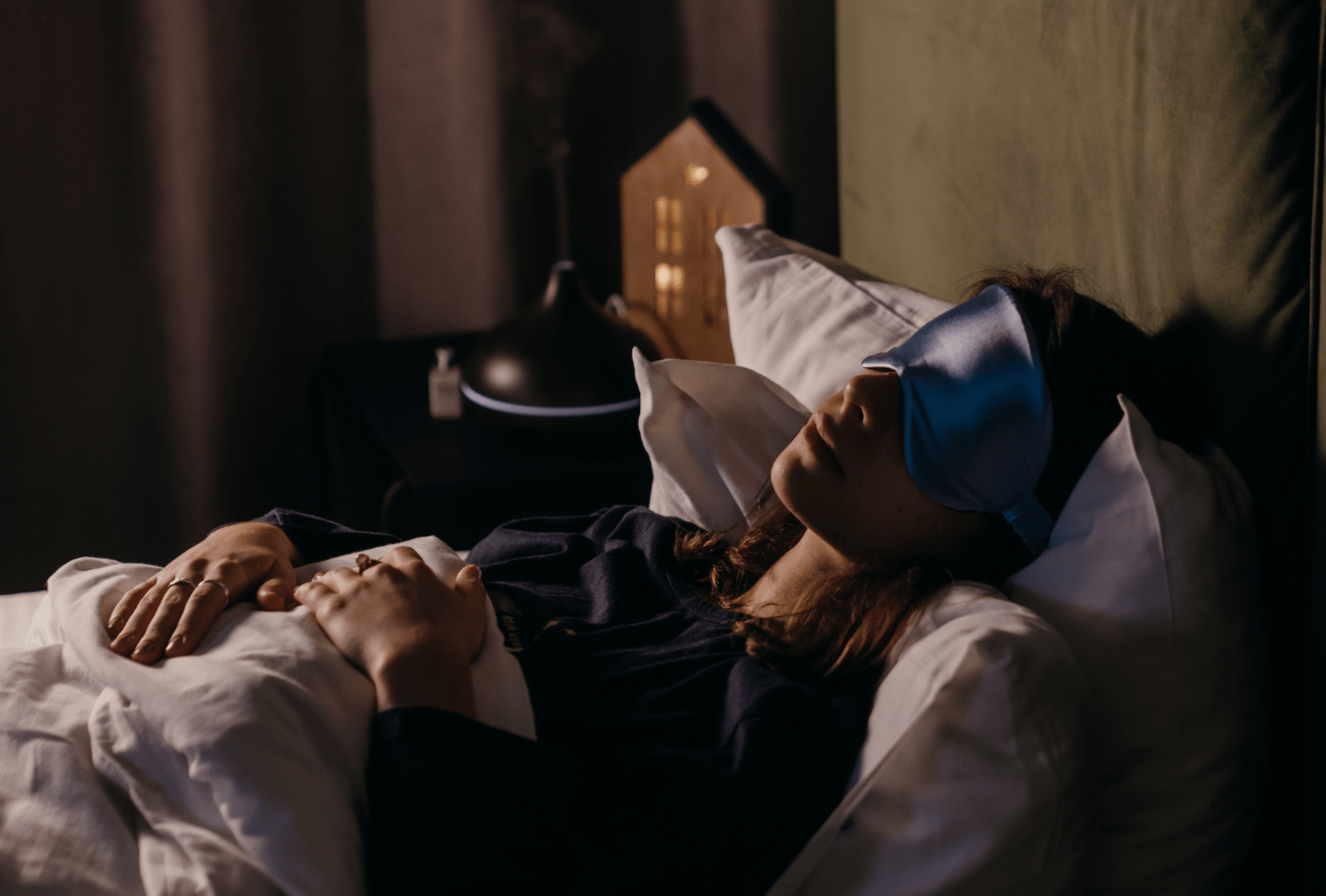
Improving Your Sleep Naturally: Remedies for Better Nights
If you’ve ever experienced the frustration of tossing and turning in the wee hours, yearning for a blissful night’s sleep, rest assured, you’re not sailing that ship solo. The quest for a restful slumber is a universal struggle, but don’t let that furrow your brow! In the pages of this article, we’re not just skimming the surface; we’re about to embark on a deep dive into the mystical realm of natural sleep improvement. So, no need for magic pills or fancy gadgets—what you’ll find here are practical, down-to-earth tips, shared like friendly whispers to guide you into the cozy embrace of sleep.
Now, without further ado, let’s plunge into the ocean of insights and navigate the course toward nights filled with restful tranquility!
Common Culprits: Why Quality Sleep Eludes You
Have you ever found yourself staring at the ceiling, wondering why sleep seems like an elusive dream? If counting sheep isn’t doing the trick, let’s explore some potential reasons why you might be missing out on the quality sleep you deserve:
- Stress and Anxiety: A racing mind is a common sleep thief. Whether it’s work pressures, personal concerns, or the never-ending to-do list, stress and anxiety can create a mental whirlwind that makes it challenging to unwind.
- Technology Temptations: Your beloved screens emit a blue light that suppresses melatonin, the sleep hormone. Constant exposure to this light, especially before bedtime, can wreak havoc on your body’s natural sleep-wake cycle.
- Irregular Sleep Schedule: Inconsistent sleep patterns confuse your body’s internal clock. If you’re a night owl during the week and a morning person on weekends, your body struggles to establish a consistent sleep routine.
- Caffeine and Late-Night Snacking: Consuming caffeine late in the day or indulging in heavy snacks close to bedtime can disrupt your sleep. The stimulatory effects of caffeine linger, and a full stomach may lead to discomfort.
- Uncomfortable Sleep Environment: Is your sleep environment a haven or a headache? An uncomfortable mattress, inadequate pillows, or a room that’s too hot or too cold can all contribute to restless nights.
- Lack of Physical Activity: Regular exercise promotes better sleep, but a sedentary lifestyle can lead to excess energy that doesn’t get expended, leaving you tossing and turning.
- Medical Conditions: Conditions such as sleep apnea, insomnia, or restless leg syndrome can significantly impact sleep quality. If you suspect a medical issue, seeking professional advice is crucial.
- Environmental Disruptions: External factors like loud noises, bright lights, or disruptions from your sleep partner can disturb your rest. Creating a serene sleep environment is key.
- Overcommitment and Burnout: Juggling too many responsibilities can lead to burnout, making it difficult to unwind when it’s time to hit the hay.
- Napping Habits: While a short nap can be beneficial, excessive or ill-timed napping may interfere with your regular sleep patterns.
Understanding these potential culprits is the first step towards reclaiming your sleep. Identifying the factors that resonate with your experience can guide you in making targeted changes, creating a path to restful nights and brighter mornings. Remember, quality sleep is within reach, and with a bit of detective work, you can uncover the keys to unlock the doors to a more rejuvenating slumber. Sweet dreams await!
Sleep is one of the important cycles of our everyday life! Healing our bodies and fixing some of the issues in our health relies on how many hours of sleep we get. Now, here are some tips to help you go into a deep slumber!
1. The Power of a Consistent Sleep Schedule
Imagine if your body had a built-in alarm clock, and you set it at the same time every day. Well, good news—it does! Establishing a consistent sleep schedule, where you go to bed and wake up at the same time every day (yes, even on weekends), helps regulate your body’s internal clock. This not only improves the quality of your sleep but also makes waking up in the morning a lot less painful. So, pick a bedtime that allows for a solid 7-9 hours of sleep, and let your body thank you for the routine.
2. Create a Relaxing Bedtime Ritual
Your body loves signals, especially the ones that say, “Hey, it’s time to wind down.” Create a soothing bedtime ritual to let your body know that sleep is approaching. This could be anything from reading a book, taking a warm bath, or practicing some gentle yoga. Find what works for you, and let it become a prelude to a restful night.
3. Watch What You Eat and Drink Before Bed
Ever tried to sleep with a full stomach or after chugging a caffeinated beverage? Not the best experience, right? Avoid heavy meals and stimulants like caffeine close to bedtime. Opt for a light snack if you’re hungry, and consider a calming herbal tea like chamomile, which can act as a gentle sleep inducer.
4. Transform Your Sleep Environment
Your sleep sanctuary should be a haven for relaxation. Keep your bedroom cool, dark, and quiet. Invest in comfortable bedding and pillows. If noise is an issue, consider using earplugs or a white noise machine. Creating an environment that screams “peace” sets the stage for a restful night.
5. Exercise Regularly, But Not Right Before Bed
Exercise is like a magic potion for sleep, but timing matters. Engage in regular physical activity, but try to wrap it up at least a few hours before bedtime. Exercise energizes you, and you want to give your body some time to wind down before hitting the hay.
6. Limit Screen Time Before Bed
The glow of your smartphone, tablet, or TV screen can disrupt your sleep-wake cycle. The blue light emitted by screens suppresses melatonin, the hormone responsible for sleep. Aim to turn off electronic devices at least an hour before bedtime, and consider reading a physical book instead.
7. Embrace Natural Sleep Aids
Certain natural remedies can be your allies in the quest for better sleep. Consider incorporating calming scents like lavender with essential oils or using a sleep-inducing herbal supplement like valerian root. Remember, always check with a healthcare professional before adding new supplements to your routine.
8. Manage Stress and Anxiety
Sometimes, a racing mind can be the biggest obstacle to a good night’s sleep. Explore stress-reducing activities like meditation, deep breathing exercises, or journaling to unload the day’s thoughts before hitting the pillow.
9. Be Mindful of Napping
Napping can be a double-edged sword. While a short nap can boost alertness and performance, long or irregular napping during the day can interfere with your nighttime sleep. If you’re a nap enthusiast, aim for a power nap of about 20-30 minutes to recharge without disrupting your sleep cycle.
10. Know When to Seek Professional Help
If sleep troubles persist, it’s crucial to seek professional advice. Chronic insomnia or sleep disorders might require specialized attention. Don’t hesitate to consult with a healthcare provider who can guide you on the best course of action for your specific situation.
Conclusion
It becomes evident that the journey to improved slumber involves weaving a tapestry of uncomplicated yet impactful adjustments to both your daily routine and bedtime rituals. Picture this endeavor as a delightful stroll down a path adorned with the simplicity of thoughtful habits, each step a testament to your commitment to a restful night. Essentially, it’s not just about tweaking habits; it’s crafting an environment that softly murmurs, “Time to unwind.” Picture your bedroom as a sanctuary, a cocoon of tranquility where stress is left at the door, and your worries dissipate into the serenity of the night. As we bid adieu, let’s toast to the evolution of your nights, envisioning each sleep as a painting composed of the quiet symphony of your breathing and the gentle rustle of dreams. May your nights be embraced by the kind of deep, uninterrupted slumber that leaves you waking up feeling replenished and ready to seize the day.
Here’s to the transformation of your nights, not just as a series of sleep cycles but as a sanctuary for your well-being. So, with a heart full of serenity and a mind attuned to tranquility, go ahead, embrace the sweet dreams that await you. May each night be a voyage into the serene waters of peaceful slumber, granting you the restorative rest you truly deserve. Goodnight, and may your dreams be as gentle as the whispering winds of a tranquil night.

References:
- Bruce, D. F., PhD. (2008, June 26). Natural sleep aids and Remedies. WebMD. https://www.webmd.com/women/natural-sleep-remedies
- Capetta, A. (2022, October 19). Can these 10 natural insomnia aids really help you sleep? EverydayHealth.com. https://www.everydayhealth.com/sleep-pictures/0708/8-cheap-and-natural-insomnia-remedies.aspx
- Harvard Health. (2023, November 20). 8 secrets to a good night’s sleep. https://www.health.harvard.edu/newsletter_article/8-secrets-to-a-good-nights-sleep
- How to fall asleep faster and sleep better - Every Mind Matters. (n.d.). nhs.uk. https://www.nhs.uk/every-mind-matters/mental-wellbeing-tips/how-to-fall-asleep-faster-and-sleep-better/
- Igo, C. (2023, October 7). Replace melatonin with these 7 popular All-Natural Sleep Aids for insomnia. CNET. https://www.cnet.com/health/sleep/replace-melatonin-with-these-popular-natural-remedies-for-insomnia/
- Kandola, A. (2024, January 3). How can I get to sleep easily? https://www.medicalnewstoday.com/articles/322928
- Melba Newsome. (2020, March 29). 10 natural ways to sleep Better. Healthline. https://www.healthline.com/health/natural-sleeping-remedies
- Natural Sleep Aids: Home Remedies to Help you Sleep. (2021, August 8). Johns Hopkins Medicine. https://www.hopkinsmedicine.org/health/wellness-and-prevention/natural-sleep-aids-home-remedies-to-help-you-sleep
- Sleep tips: 6 steps to better sleep. (2022, May 7). Mayo Clinic. https://www.mayoclinic.org/healthy-lifestyle/adult-health/in-depth/sleep/art-20048379
- Smith, M., MA. (2023, November 8). How to fall asleep fast and sleep Better. HelpGuide.org. https://www.helpguide.org/articles/sleep/getting-better-sleep.htm
- Suni, E., & Suni, E. (2024, January 9). The best foods to help you sleep. Sleep Foundation. https://www.sleepfoundation.org/nutrition/food-and-drink-promote-good-nights-sleep
- Team, S. Y. (2021, November 2). 15 natural ways to improve your sleep. MySlumberYard. https://myslumberyard.com/sleep/15-natural-ways-to-improve-your-sleep/
- WebMD Editorial Contributors. (2020, December 3). Remedies for insomnia. WebMD. https://www.webmd.com/sleep-disorders/remedies-for-insomnia
- Wong, C. (2023, April 28). 9 Best Natural Sleep Aids. Verywell Health. https://www.verywellhealth.com/natural-ways-to-help-you-sleep-88230
